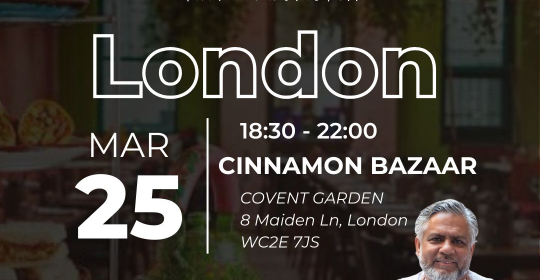It will come as no surprise to most that the WaveTrackR Recruitment Trend: Lockdown Report revealed the hardest hit industries of 2020 to be Catering & Hospitality and Retail, Wholesale. Jobs in Retail, Wholesale were down by a massive 573% in the final three months of the year from the first three and applications down 123%. Catering & Hospitality experienced negative jobs growth of 393% and an applications decline of 582% over the same period. 2020 was a year of closures, openings and closures again. When businesses were open it was with a caveat of restrictions that often incurred costs and a lot of hard work to implement. We track their journeys over 2020, dig deeper into job losses and investigate their futures as we begin to ease out of lockdown.
When the first UK lockdown was announced and restaurants, bars, pubs, hotels and bricks and mortar stores closed, recruitment in these sectors stopped overnight. WaveTrackR data, highlighted in jobs and applications trend graphs, clearly shows April and May as dead zones for jobs. Catering & Hospitality picked up over the summer as restrictions were eased and the Eat Out to Help Out scheme in August boosted consumer demand, prompting a spike in applications. Jobs continued to grow, reaching a peak in October as businesses geared up for seasonal trade towards the end of the year. Unfortunately, a second lockdown in November and tier restrictions in December severely impacted the Christmas trade.
Jobs in Retail, Wholesale have been incredibly low since March, rising slightly in October but then falling again with the second lockdown. Non-essential retail has been hit hard, particularly clothes retailers, and the collapse of several major high street conglomerates is evidence of that. The Arcadia group (who owned some of the high street’s biggest brands) went into administration in November and, although ASOS and Boohoo have between them bought the brands and stock, all stores will be closed permanently. Debenhams faced the same story, as did Jenners in Scotland, whilst John Lewis has announced that it is closing several of its stores. Laura Ashley, Warehouse, Oasis, Jaeger are all familiar high street names that have exited the high street thanks in great part to the pandemic. Specialist food shops were not immune, with Thorntons recently announcing that it will not be reopening any of its 61 shops after lockdown. Pubs, bars and restaurants across the UK have also permanently closed, as have hotels.
An analysis by Sky News of cuts made public by major businesses since the commencement of the first UK lockdown found the retail sector to be the worst hit, accounting for around one in four of the total. The Office for National Statistics reported in December that the service sector, which includes hospitality and retail, was impacted the most in terms of output. Recent figures compiled for PwC reveal the true impact Covid-19 has had on the hospitality and retail sectors and they make for stark reading. An average of 48 shops, restaurants and other leisure and hospitality venues were closed per day in 2020 and the high street lost more than 17,500 chain store outlets. This doesn’t take into account the outlets that temporarily closed during lockdowns but may never reopen or the great swathes of independents that were particularly vulnerable.
Not all businesses within these sectors have been crushed, with some positively booming during the pandemic. Essential shops such as supermarkets were overwhelmed with demand, sparking a huge hiring drive during the first lockdown. Coffee shops, bakeries and takeaways that were able to trade and benefited from the closure of the majority of hospitality venues also thrived. Location made a difference too. Shopping centres were affected more than retail parks as shoppers preferred larger stores with social distancing in mind and easy, ample parking to avoid public transport. Hospitality venues away from town and city centres also fared better as people sought to avoid busy areas. Greggs is putting this theory into practice, opening 100 new shops in 2021 off the back of better than expected trade in the first couple of months of 2021 thanks to a focus on delivery, wholesale and click and collect. The plan for many of the new shops is to refocus away from the high street, instead turning to retail parks and drive-thrus.
There has also been a movement to shop, dine and drink local as people strove to support local, independent businesses. Many businesses in both industries came up with innovative solutions to maintain output despite restrictions. Bar owners began delivering cocktail kits and running online masterclasses, restaurants and pubs offered takeaways or meal kits, hotels opened their doors to key workers, and shops of all sizes and types moved online.
Will these trends continue post-pandemic? Covid-19 has undoubtedly driven changes to consumer behaviour. It seems likely that online retail will continue to be strong, that less people will venture onto the high street and, with more people continuing to work from home in some capacity, less footfall in city centres. Cafes might make the move to more suburban areas as people work and play closer to home. People will return to hotels but will expect heightened sanitation and city centre hoteliers may notice a distinct lack of business travellers.
The brief reopening of the economy over the summer was key for many businesses, particularly in hospitality, to survive but will they make it to the end of lockdown? Many hospitality businesses are disappointed with the lengthy timeline for the reopening of indoor service for pubs and restaurants, with two high profile hospitality business owners challenging it and threatening legal action. Over 3 million people work in the UK hospitality sector, making it the third largest employer in the country, whilst retail is the UK’s largest private employer. It is essential for the recovery of the UK economy that these sectors survive, return to growth and begin to employ people in decent numbers again.
The furlough scheme, combined with various other support schemes, has undeniably been a huge help to retail and hospitality businesses unable to open or opening at reduced capacity over 2020. When the UK’s third lockdown was announced at the beginning of 2021, the chancellor made available a £4.6 billion relief package for the struggling industries, whereby businesses could receive grants of up to £9,000. Crucially, extra support was announced in the Budget - ‘restart’ grants to enable retailers and hospitality businesses to survive until they can reopen could be a lifeline for many.
Right now, it’s a waiting game but at least there is a timeline for reopening, even if it is longer for some businesses than many would like. Once all businesses can reopen, the feeling is that there will be a surge in pent-up trade, especially over the summer period. The governor of the Bank of England recently stated that the UK’s economic recovery could be quicker than forecast as a result of the continuing success of the vaccination programme. Andrew Bailey predicted that output could return to its pre-pandemic level by the end of the year. Whether this happens or not, the future is certainly looking rosier for the industries that have suffered the greatest during this past year.







